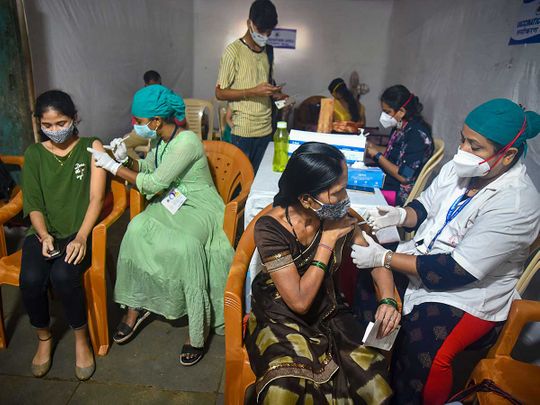
Coronavirus cases worldwide have topped 200 million, and there are no signs of abating. Many countries have endured second and third waves of infections. Mutations have been the source of continued misery. And the Delta variant, which was first identified in Maharashtra, India, has proved to be the most virulent. It spreads faster, makes people sicker than other variants, and worse, it afflicts the young severely.
It is the strain that is rampaging in most parts of the world. Fortunately, the newer strains have not rendered the vaccines ineffective, although the efficacy is reduced. For a respiratory disease that surfaced in January 2020, a vaccine was ready before the year was out. Today we have at least 19 vaccines, but the SARS-CoV-2, the virus that causes COVID-19, continues to wreak havoc.
That’s because there are not enough supplies of vaccines. Wealthy countries have funded vaccine research and cornered much of the supplies. And production has not been able to keep up with the demand. Even an affluent nation like Australia does not have enough stock, and its vaccination programme is suffering.
The plight of underdeveloped countries is even worse. They are at the mercy of vaccine alliances like Covax and Gavi, who have worked zealously to supply COVID shots. Sadly, the inequitable distribution of vaccines has been a stumbling block in the fight against the global pandemic.
What’s more galling is the reluctance of people in wealthy countries to take the jab. Anti-vaxxers and conspiracy theories have slowed the pace of vaccination in a country like the United States. And that has given rise to the pandemic of the unvaccinated.
The US Centres for Disease Prevention and Control says that more than 99 per cent of deaths in the country now has been among the unvaccinated. This is in a country that offers sops for people to get vaccinated, and there’s no shortage of vaccines.
The COVID-19 safety protocols have been eased in several European countries, but the restrictions are back following a spike in infections. That is to be expected since vaccinations alone will not prevent the spread of coronavirus.
Even fully vaccinated people have to follow the safety measures that include wearing masks and observing social distancing besides frequent cleaning of hands with soap or sanitisers. Breakthrough infections (cases among fully vaccinated people) is a reality, although it is rare. That’s enough reason to follow the COVID-19 safety protocols diligently. They are here to stay until the pandemic is eliminated.





